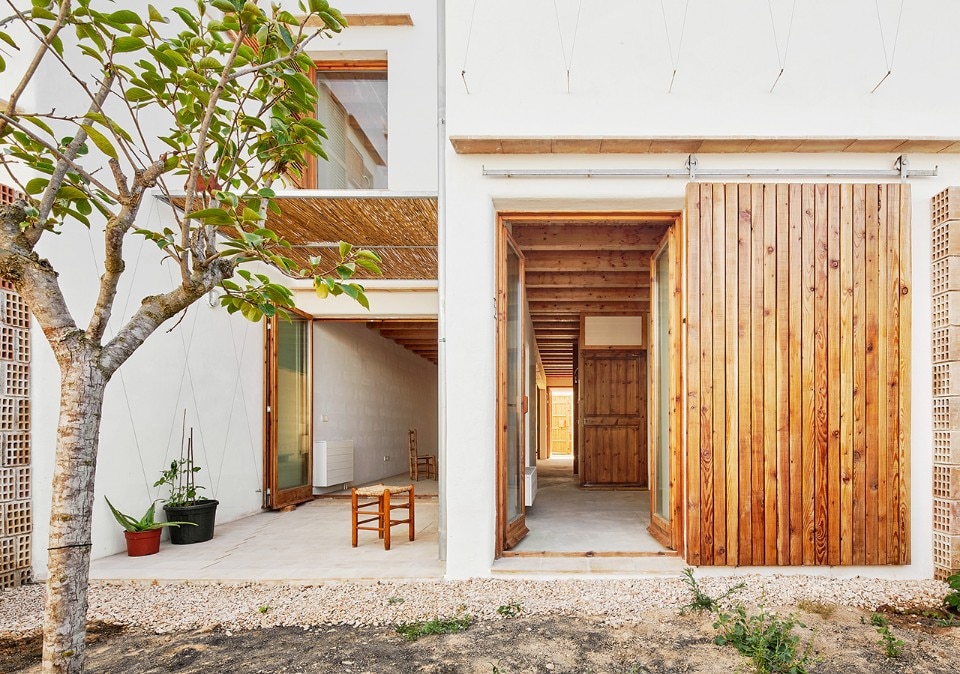The 14 social housing units that make up the complex in Sant Ferran, Formentera, are the pilot project of the Life Reusing Posidonia programme, an initiative that promotes the use of innovative construction methods that recover local techniques and materials – and which is named after the seagrass variety Posidonia Oceanica.
The research is promoted by the Institute for Social Housing in the Balearic Islands (IBAVI), in collaboration with the University of the Balearic Islands (UIB) and has very ambitious goals: to reduce CO2 emissions by 50% during construction, lower by 50% the production of waste, cut by 75% the use of energy for heating and cooling of homes and 60% the consumption of water.

For the implementation of the first pilot project, great attention was paid to the life cycle of all used components: the project becomes a map of resources and material flows in the area. The use of traditional techniques and materials does not follow formal reasons but is a way to work in economy, updating traditional solutions in a contemporary way.
The housing complex consists of two separate blocks of six and eight apartments, each with street access and a private open space available. The houses have a double facing that allows cross ventilation of the interiors.

Among the several technological solutions applied to buildings in order to achieve the established objectives there is the reuse of Posedonia Ocenica, a very common plant in the Mediterranean. Also called Neptune grass, it has been dried naturally and used for roof thermal insulation.
The IBAVI components explain: “We propose a change of paradigm: Instead of investing in a chemical plant located 1,500km away, we invest the same budget to local unskilled labor, which should extend the Neptun grass to dry under the sun and compact it in pallets, achieving 15cm of insulation in roof. Moreover, it turns out that sea salt acts as natural biocide product and is completely environmentally friendly.”

- Project:
- Life Reusing Posidonia
- Program:
- social housing
- Location:
- Sant Ferran, Spain
- Architect:
- IBAVI
- Design team:
- Carles Oliver Barceló, Antonio Martín Procopio, Xim Moyá Costa, Alfonso Reina Ferragut, Maria Antònia Garcías Roig
- Area:
- 880 sqm
- Completion:
- 2017

The Trafic parquet collection: a new language for spaces
Designers Marc and Paola Sadler draw on now-extinct urban scenarios to create an original and versatile product for Listone Giordano.






























